- Home
- Arthur Conan Doyle
The Mummy Megapack Page 4
The Mummy Megapack Read online
Page 4
Abraham had borrowed from a sympathetic bookseller a copy of Giovanni Belzoni’s memoir of exploration and excavations in Egypt, published thirty years earlier. Abraham’s mother had studied the watercolors of tomb inscriptions and monuments. In other books, they had examined reproductions of Egyptian funerary art. The boy’s mother laid her fingers on images of human-headed, winged figures. “It was such a different, dark, and primitive world,” she had whispered, “and yet, here are the winged ones, in the land beyond death.”
Abraham had read about the medical theories of an earlier age, when physicians prescribed powder of ground-up mummy for their ailing patients in the belief that the resin in the mummy wrappings held curative powers. Such ideas had been discarded, and the thought of them made Abraham ill. He searched for other cures that made more scientific sense. He carefully followed antique recipes whenever he discovered something that struck him as having merit.
His mother had drunk the potions and taken the powders he concocted without complaint, but nothing had slowed the wasting of her flesh, and very little eased the pain in her abdomen.
By the time she said farewell, she had turned into a flattened sketch of the gentle, loving mother he had known. It had hurt him to look at her, and, though he would not let himself think such thoughts, the smell of her sickness repulsed him. Her hand, as he clutched it before her last breath and the death rattle that followed, felt cool and frail, sticks wrapped in stretched hide. It hurt him that her luminous spirit had had to be housed in such a frail receptacle, and he felt a shameful relief when she was gone.
Abraham and his father stepped down into the street from the confines of the hansom cab. They had not been able to get close to the entrance of the Royal College; the approach was clogged with other cabs and carriages. Gas lamps lit the street. The London air was fetid with the odors of coal smoke and sewage and the Thames, that artery running through the heart of the city that received much of the city’s offal.
A crowd of well-dressed men and women out for an evening’s entertainment caused a crush in the doorway, where the ticket collector stood.
“What do you suppose he’ll uncover tonight?” one man asked another.
“I went to an unrolling last year, and there were several amulets, some of stone, with strange inscriptions on them. The mummy’s fingernails, toenails, and eyelids were gilded. The nails were fastened to the fingers and toes with wires. The corpse looked frightful, so dried and twisted. Is this truly their vision of immortality? Strange people, those Egyptians.”
“I went to an unrolling where there was a peculiar sort of varnish over the inner bandages, and Dr. Pettigrew could not break through it, though he employed all sorts of tools. All the mummy’s secrets were left undisclosed; he had to dismiss us without completing the task. The entire audience was disappointed.”
“Papa,” Abraham murmured.
“My son?” His father put a hand on his shoulder.
“My stomach.…” His stomach had been sour for some time — since before his mother’s death. His appetite had been poor: no food stirred his desires. When he ate, he ate only because he knew he must. Everything tasted of ashes.
“Have a peppermint.” His father fetched a peppermint drop from a small sack he kept in his waistcoat pocket for just such complaints, and handed it to Abraham, who put it in his mouth.
Abraham’s father handed the tickets to the collector, and they went inside to their reserved seats in the front row.
The linen-wrapped mummy lay on a table under hissing gas lamps. Abraham settled in his seat and stared at the crisscross of narrow, time-browned bandages that bound the body.
“Abraham.” Papa’s hand gripped his shoulder.
Abraham drew strength from that firm clasp. He swallowed bile and opened his eyes. They were here to watch science, to learn the secrets of an ancient civilization, to participate in one of the wonders of an enlightened age. He must be awake to opportunities.
“You would bring a child to such an event?” asked a low, pleasant woman’s voice from Papa’s other side. She sounded cultured and faintly amused.
“Madam?” said Papa. Abraham could tell he was shocked that a stranger and a woman would speak to him without an introduction.
“How old is the boy?”
“Eleven and a half.”
“Surely this is a spectacle for mature minds, not for children. Do you wish to give him nightmares?”
“My son is wise beyond his years.”
The woman leaned forward and peered past Papa into Abraham’s eyes. Her eyes were dark and bold, unpleasantly intrusive. “You are accustomed to such events?” she asked.
“I have never been to an unrolling before,” he said in careful English, “but Papa has me brought to other marvelous things. Always I look forward to a chance to expand my knowledge.”
She smiled, shook her head. “Ah, well.” She leaned back, and Abraham lost sight of her.
A bearded man in a speckled suit, attended by two younger men with shaven chins, high collars, and side whiskers, came into the room from a door on the other side of the mummy. The murmurs of the crowd quieted.
“Good evening,” said the bearded man. “I’m Dr. Pettigrew, professor of anatomy at Charing Cross Hospital. These are my associates, Mr. Willis, a clerk, and Mr. Cruikshank, an illustrator. They will make notes of everything we discover tonight. Welcome to another in my series of explorations into the funerary customs of the ancient Egyptians. They were a people who spent all their lives preparing for their afterlives. Their knowledge of anatomy and the science of embalming was in some ways superior to our own. We have much to learn from them.”
Abraham thought of his mother’s wasted face the last time he had seen her, at rest in her coffin. The terrible tension had eased from her cheeks, leaving her face empty, unfamiliar, without character. Clearly she had left her earthly body behind. Had her spirit gone on?
He had not been able to bear looking at what lay in the coffin. His soul was alive with the fierce longing to turn back the clock and rescue her before the disease could devour her.
“Tonight’s mummy is from a collection of Egyptian antiquities that just came on the market last week. It has been in private hands since the early days of exploration in Egypt. Its provenance is uncertain; hence, we will have to look to clues in the wrapping and mummification to determine in which dynasty this mummy was made, if such identification is even possible. From the style of the wrappings I would venture to guess that this is a middle or late period mummy, but we shall learn more as we proceed. Gentlemen. Let us commence with the unrolling.” Pettigrew turned to his two accomplices, who came forward and took up seats beside the mummy, took out portable desks with paper on them, set opened bottles of ink in their ink wells, and dipped their pens.
Pettigrew turned to a surgical tray of implements beside the table and lifted a scalpel. “We begin with the bandages of the head.” He carefully sliced through one of the strips of linen binding the head, and then, rolling the bandage as he unwrapped it from the corpse, he worked his way around the head, speaking all the while of how recent microscope studies had determined that all mummy bandages were indeed linen, not cotton as had previously been believed. He talked about the study of insects that had hatched within bandages after mummies had been interred, and then he discoursed on what people had surmised from studying texts on the insides and outsides of the nested mummiform coffins, often two or three deep, in which the mummies of rulers, priests, and the wealthy were buried.
“George, note this as Bandage One,” Dr. Pettigrew said to one of his assistants, who made a note on a small square of paper and pinned it to the first bandage. Dr. Pettigrew tugged at a different piece, removed another layer of linen from the figure’s head and neck.
Abraham listened with only half his mind. The other part of his brain was concerned with thoughts of his mother’s coffin, buried in consecrated ground in Holland, the service said over her before they had cast ritual h
andfuls of dirt into her grave, a visible and tactile farewell. Would unknown people hundreds of years hence dig up his mother’s grave, study her poor, decaying corpse? Display her for the idle rich, discuss her habits? Did she still cling to her remains?
“Ah,” said Dr. Pettigrew. “Here at the throat, three layers into the wrappings, we find our first amulet.”
A gasp came from everyone in the audience as Dr. Pettigrew held up a red object. “This shape is what we call a buckle. We believe this amulet is sacred to the Goddess Isis, a plea for her to protect the mummy with the powers of her magic and blood. I will set these objects on a table, here —” he turned and placed the amulet on a cloth-covered wheeled table behind him —“where Mr. Cruikshank can sketch them and make notes about their placement on the body. After I complete the unrolling, those interested may come up for a closer look. I will donate all these objects to the British Museum following the exercise, with complete notes as to their placement.”
It’s a treasure hunt, Abraham realized. He glanced around at the people in the audience. They leaned forward, their eyes hungry, mouths slightly open as though to feast on the strange spectacle.
“Many different lengths and widths of bandages were used in wrapping the mummy,” Dr. Pettigrew said. He held up a bandage he had just removed from the chest. “This one has fringes, and is hemmed in a different color. Look here.” He showed them a central part of the bandage, where faded ink scrawled indecipherable outlines. “This may be a prayer, or the name of the deceased. I’ll give these materials to the scholars.”
Abraham raised his hand. “For what was the writing, doctor?”
“A spell, a protection, or just to commemorate the person. It may be the person’s name. Names were important to them; they left their names everywhere. These Egyptians were a superstitious lot. They had spells for everything. Perhaps the writings were supposed to protect them from tomb robbers.”
Manifestly, the spell hadn’t worked in this case.
What was he thinking? Heathen magic flew in the face of logic and science. Not only that, but it blasphemed against the true faith. This was just an exercise in observation and information collecting, a study of the quaint customs of a vanished people whose belief systems had been fatally flawed.
The doctor unrolled more bandages, lecturing as he went. Abraham leaned forward like everyone else, anxious, now, ready to have the bandages gone. He had seen mummies in the British Museum that afternoon, but they were still swaddled in linen. Did a perfectly preserved body lie inside the wrappings? When the bandages parted over the face, would it look as fresh as the day it was prepared, three or four thousand years earlier?
Was there a chance of resurrection? Of life after death, even after a sleep of a thousand years?
“Ah,” said the doctor, “here’s the heart scarab.” He held up a green lump the size of a child’s fist, and there came a collective gasp from the room again. “A particularly fine specimen. The Egyptians believed that the heart was the source of knowledge and intelligence. To them, it was the most important organ in the body. The inscription on the bottom of the heart scarab instructs the gods of the afterlife not to weigh the mummy’s heart too heavily in the scales of justice. As we do in our faith, the Egyptians believed that evil deeds could condemn them. Good deeds and the right intercessions by the gods could elevate them to a land of eternal bliss. Bad deeds made their hearts weigh heavier than the Feather of Truth, and the Devourer of the Dead waited beside the scales during the weighing. If judgment went against the deceased, the Devourer ate the heart, and the dead person’s self was lost forever.”
Abraham shivered. In his darkest hours, he had reached for hope that he would someday meet his mother in the realms of the blessed, restored to her true self, and happy. What if she had done something wrong in her life? What if she had gone to the other place?
What if he used his life badly, and never reached that reunion?
The doctor went back to work, meticulously unrolling, speaking all the while. Then he gasped. Everyone in the room drew in a breath and leaned forward. The doctor had not been surprised by his previous finds, only pleased. What had he discovered now?
The wings glinted in the gas flames. The part of the soul that wanders, Abraham thought, and remembered thin fingertips brushing lightly over images of winged beings. Mother: does a part of your blessed soul wander? Does it linger here on Earth? Are you waiting for me to discover how to see and speak with you? He rose and walked toward the doctor and the amulet.
“Abraham!” cried his father.
“Son?” said the doctor. He glanced around. Men who had been standing in shadow against the back wall converged.
Abraham’s hand lifted, hovered near the winged image. Do you wander still, ancient one? Can you speak to others like yourself?
Can you be a conduit between one who yet lives and one who has gone beyond?
Oh, but this was foolish. It defied rationality, and it was one of the temptations away from the true faith.
The boy thought, I believe in the remission of sins, the resurrection of the flesh, the life everlasting. This poor soul, or part of a soul, is not saved —
“Please. Return to your seat. You may examine the finds after the lecture is concluded,” said the doctor, taking a step back.
Abraham touched the silver amulet with his fingertips. At first, it was cool and smooth to the touch. Then fierce heat gathered. A glow surrounded the amulet. Light flowed from the amulet to envelope his hand, stinging like nettles. Shock radiated through him, and he stumbled back. Heat raced like rivers of molten metal through his body. He cried out.
Something was present. Something had survived.
“Abraham!” Papa leaned over him, a shadow against the light. He lifted his head and faced Dr. Pettigrew. “Doctor, I am so sorry! He is in general the best-behaved boy in the world. I don’t know what possessed him. Please forgive us.”
Papa knelt, lifted him, carried him out of the hall.
The evening air was cool and damp and filthy. His father carried him toward the corner. Gas lamps made glowing halos in the mist. The clopping of horses’ hooves, the ring of wheels against the cobbles, echoed between buildings.
“Son, you have disgraced me,” Papa said. He quickened his stride, hailed a passing cab. Abraham felt a twinge of shame, then an overwhelming weariness.
The driver pulled his horse to a stop and released the door. “Where to?”
“Morley’s Hotel on Trafalgar Square.” Papa set Abraham on the seat and settled beside him in the darkness of the cab’s interior. The door closed, and the cab swayed as it set off.
“What into you has gotten?” Papa asked.
Abraham could not answer. He didn’t yet know what this was, this molten spill that had burned into his bones and etched itself onto his organs.
Abraham’s breath was hot as it rushed out over his tongue, cool as he drew it in. His breathing was so loud he couldn’t hear anything else.
“Abraham!” said Papa.
“Son? Are you weeping?” Papa touched the tears on his cheek.
Abraham could not explain: not any of it. The amulet had called to him — how? Why? What had wakened after a sleep of thousands of years? Who was now resident inside him, remembering the scent of spices and unguents from ancient times, the taste of honey on the tongue, the heat of a blazing, dusty midday and the fretted shadows of palm fronds across pale stone?
What remnant of personality was it that, defying science, had lasted millennia to live again, even in such a tattered form?
Death was not final. If one soul could survive death, might not another? Suppose his mother had left a piece of herself in something at home, something he had not touched since her death —
He lay back against the seat, his gaze fixed on the roof of the cab as though he could see through it, past the mists and smokes of the London sky to the stars above, and beyond.
The sky cracked open and the possibility of wonders rai
ned down.
THE MUMMY’S FOOT, by Jessie Adelaide Middleton
Nothing would induce me to write the full story of the mummy at the British Museum, though an Egyptian friend has given me some information which throws a little further light on the matter. I think the subject is one to be left severely alone, and I only wish the late Mr. Fletcher Robinson, whom I knew, had thought so too, and consequently avoided it.
In the beginning of this year, however, I was involved in a strange episode concerning a mummy’s foot, the scene of which was the house at Hampstead in which I am now writing, which is quite modern, and, to say the least of it, the most “unghostly” place I have ever met with.
Last New Year’s Eve, Miss Westwood, a girl friend who was staying with us, went to a New Year’s patty, after the theatre, at the Moulin d’Or Restaurant in Church Street, Soho. Among the guests was a traveller who had been in the East a great deal and spoke several languages. I will call him Mr. Stanhope, though that is not his real name. Just before the clock struck twelve, he took from his pocket a mummy’s foot and held it up, saying, “Which of you would like to have this for a mascot?” The girls who were there all uttered exclamations of horror and disgust; the men laughed.
The foot—a woman’s—was passed round and examined with awe and shuddering. It was in beautiful condition, every toe and even the nails being perfect, in colour dark brown, almost black with age and bitumen, but having scraps of the cerement cloth still clinging to it. The shape was slender, the foot beautifully formed, the size hardly larger than that of a child, though, of course, it was much shrunken. Mr. Stanhope said that, according to the hieroglyphics on the coffin, it had been the foot of an Egyptian dancer.
When everybody had looked long enough at it, my friend Miss Westwood, who is very practical and matter-of-fact, and does not believe—did not, rather—in occult influence, said, “Let me have it—just for fun—just to see if it brings me any luck.”

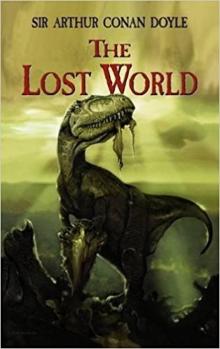 The Lost World
The Lost World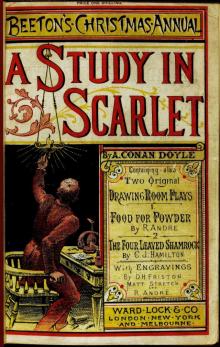 A Study in Scarlet
A Study in Scarlet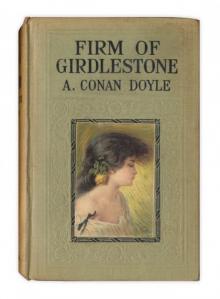 The Firm of Girdlestone
The Firm of Girdlestone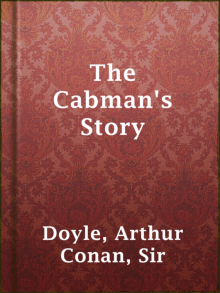 The Cabman's Story
The Cabman's Story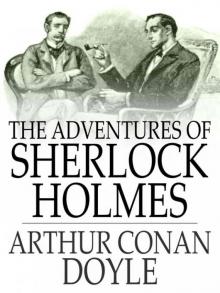 The Adventures of Sherlock Holmes
The Adventures of Sherlock Holmes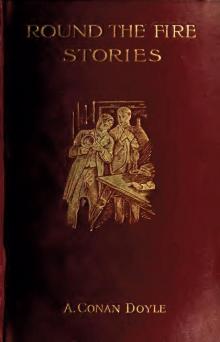 Round the Fire Stories
Round the Fire Stories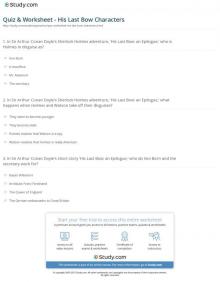 His Last Bow: An Epilogue of Sherlock Holmes
His Last Bow: An Epilogue of Sherlock Holmes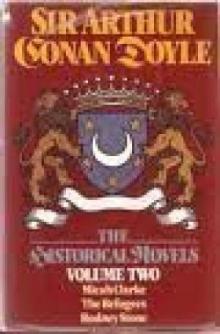 Micah Clarke
Micah Clarke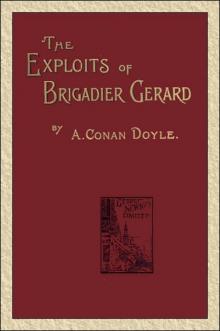 The Exploits of Brigadier Gerard
The Exploits of Brigadier Gerard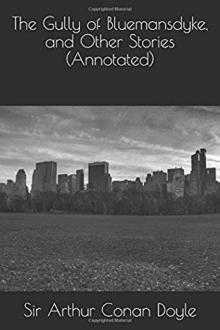 The Gully of Bluemansdyke, and Other stories
The Gully of Bluemansdyke, and Other stories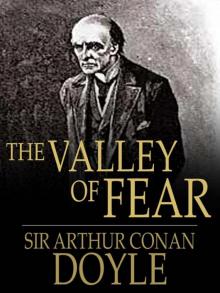 The Valley of Fear
The Valley of Fear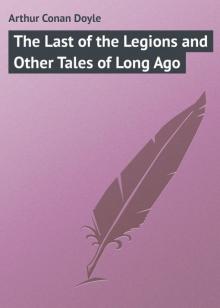 The Last of the Legions and Other Tales of Long Ago
The Last of the Legions and Other Tales of Long Ago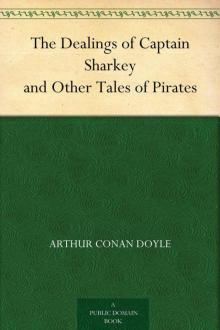 The Dealings of Captain Sharkey, and Other Tales of Pirates
The Dealings of Captain Sharkey, and Other Tales of Pirates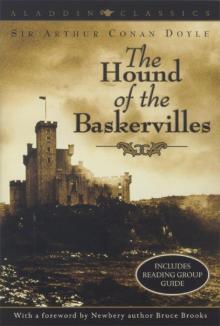 The Hound of the Baskervilles
The Hound of the Baskervilles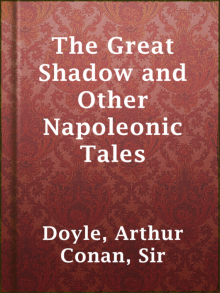 The Great Shadow and Other Napoleonic Tales
The Great Shadow and Other Napoleonic Tales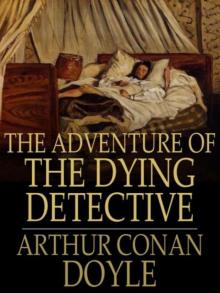 The Adventure of the Dying Detective
The Adventure of the Dying Detective The Man from Archangel, and Other Tales of Adventure
The Man from Archangel, and Other Tales of Adventure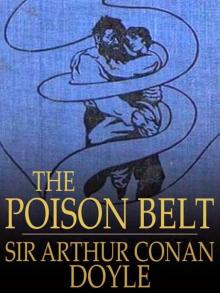 The Poison Belt
The Poison Belt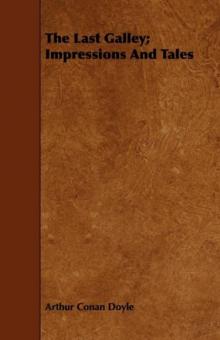 The Last Galley; Impressions and Tales
The Last Galley; Impressions and Tales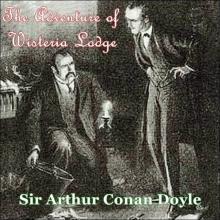 The Adventure of Wisteria Lodge
The Adventure of Wisteria Lodge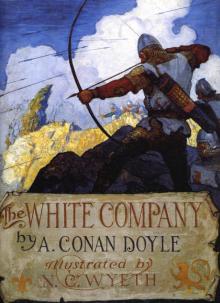 The White Company
The White Company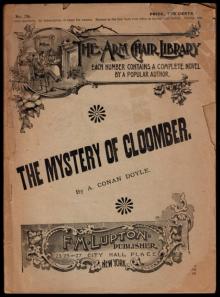 The Mystery of Cloomber
The Mystery of Cloomber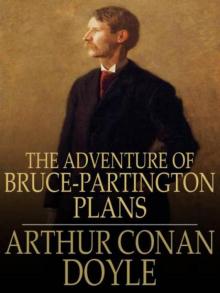 The Adventure of the Bruce-Partington Plans
The Adventure of the Bruce-Partington Plans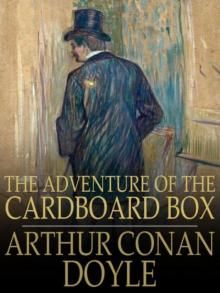 The Adventure of the Cardboard Box
The Adventure of the Cardboard Box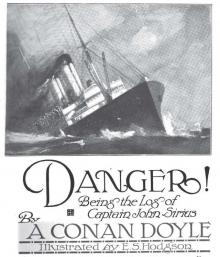 Danger! and Other Stories
Danger! and Other Stories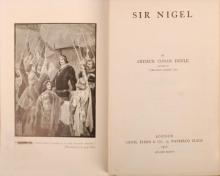 Sir Nigel
Sir Nigel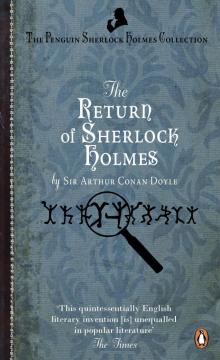 The Return of Sherlock Holmes
The Return of Sherlock Holmes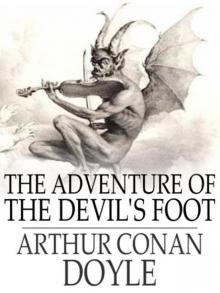 The Adventure of the Devil's Foot
The Adventure of the Devil's Foot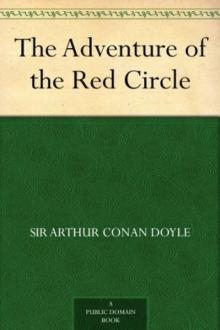 The Adventure of the Red Circle
The Adventure of the Red Circle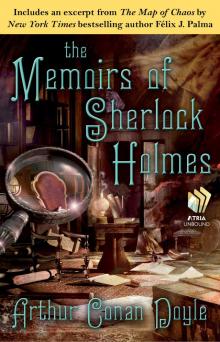 The Memoirs of Sherlock Holmes
The Memoirs of Sherlock Holmes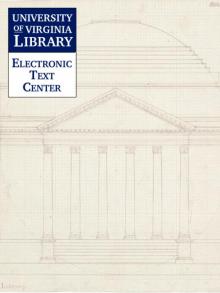 The Adventure of the Yellow Face
The Adventure of the Yellow Face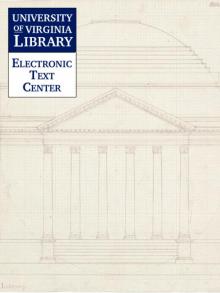 The Adventure of the Norwood Builder
The Adventure of the Norwood Builder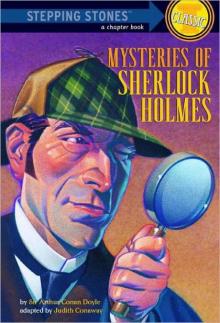 Mysteries of Sherlock Holmes
Mysteries of Sherlock Holmes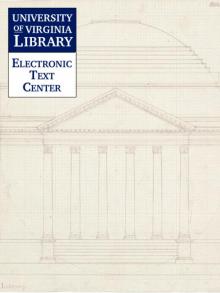 The Adventure of the Missing Three-Quarter
The Adventure of the Missing Three-Quarter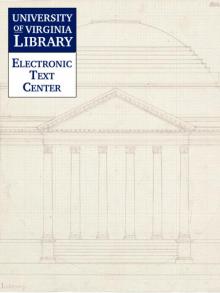 The Adventure of the Final Problem
The Adventure of the Final Problem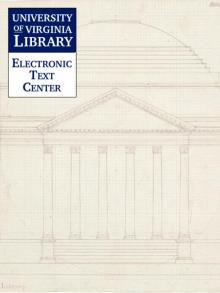 A Scandal in Bohemia
A Scandal in Bohemia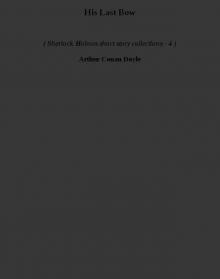 His Last Bow shssc-4
His Last Bow shssc-4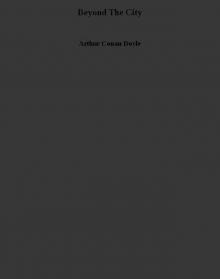 Beyond The City
Beyond The City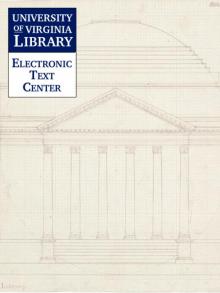 The Adventure of the Gloria Scott
The Adventure of the Gloria Scott The Parasite
The Parasite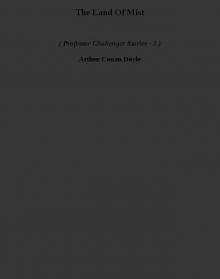 The Land Of Mist pcs-3
The Land Of Mist pcs-3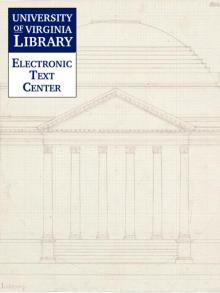 The Adventure of the Musgrave Ritual
The Adventure of the Musgrave Ritual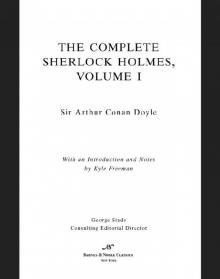 The Complete Sherlock Holmes, Volume I (Barnes & Noble Classics Series)
The Complete Sherlock Holmes, Volume I (Barnes & Noble Classics Series)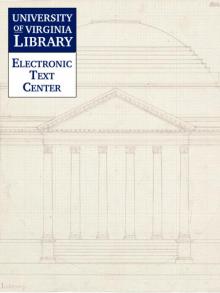 The Adventure of the Stockbroker's Clerk
The Adventure of the Stockbroker's Clerk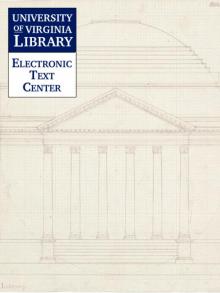 The Adventure of the Copper Beeches
The Adventure of the Copper Beeches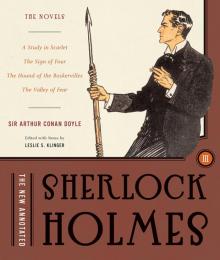 The New Annotated Sherlock Holmes
The New Annotated Sherlock Holmes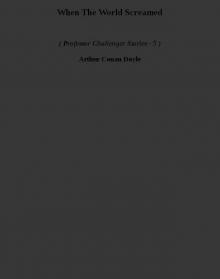 When The World Screamed pcs-5
When The World Screamed pcs-5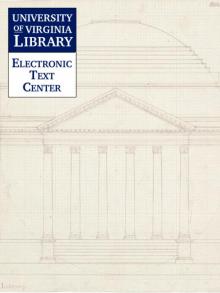 The Adventure of the Six Napoleons
The Adventure of the Six Napoleons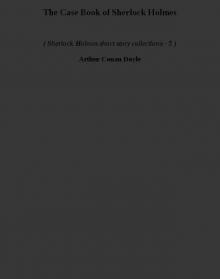 The Case Book of Sherlock Holmes shssc-5
The Case Book of Sherlock Holmes shssc-5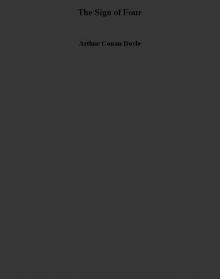 The Sign of Four
The Sign of Four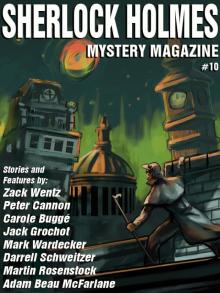 Sherlock Holmes Mystery Magazine #10
Sherlock Holmes Mystery Magazine #10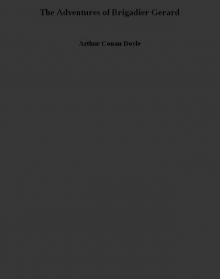 The Adventures of Brigadier Gerard
The Adventures of Brigadier Gerard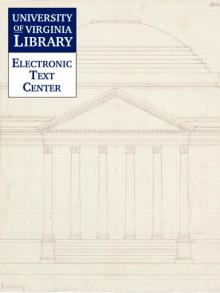 The Adventure of the Second Stain
The Adventure of the Second Stain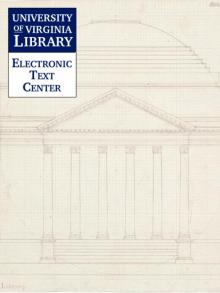 The Adventure of the Engineer's Thumb
The Adventure of the Engineer's Thumb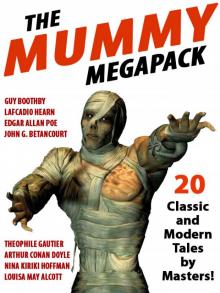 The Mummy Megapack
The Mummy Megapack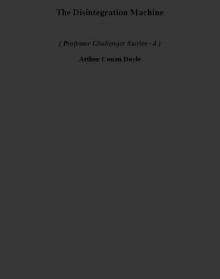 The Disintegration Machine pcs-4
The Disintegration Machine pcs-4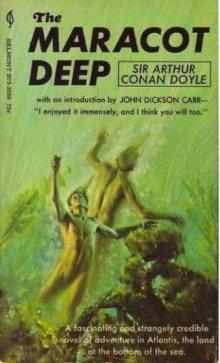 The Maracot Deep
The Maracot Deep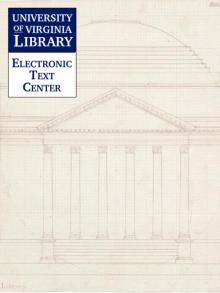 The Five Orange Pips
The Five Orange Pips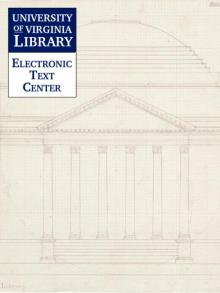 The Adventure of the Crooked Man
The Adventure of the Crooked Man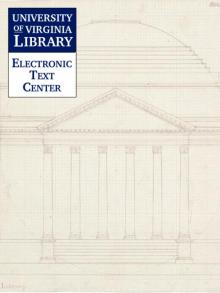 The Adventure of the Blue Carbuncle
The Adventure of the Blue Carbuncle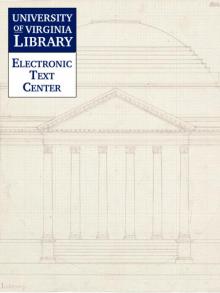 The Adventure of Silver Blaze
The Adventure of Silver Blaze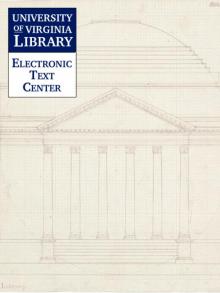 The Adventure of the Solitary Cyclist
The Adventure of the Solitary Cyclist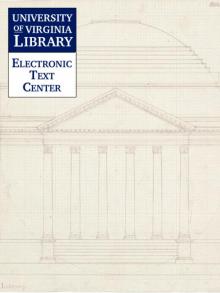 The Adventure of the Naval Treaty
The Adventure of the Naval Treaty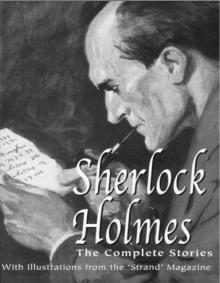 Sherlock Holmes. The Complete Stories
Sherlock Holmes. The Complete Stories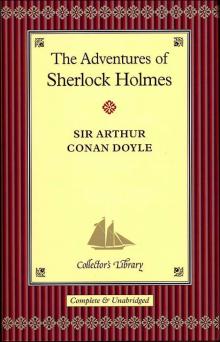 The Adventures of Sherlock Holmes (sherlock holmes)
The Adventures of Sherlock Holmes (sherlock holmes)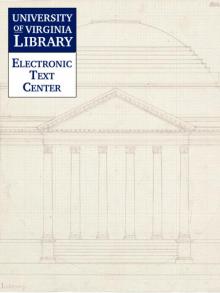 The Adventure of the Empty House
The Adventure of the Empty House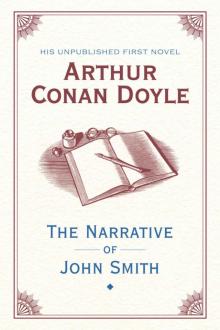 The Narrative of John Smith
The Narrative of John Smith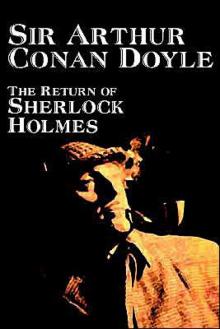 The Return of Sherlock Holmes (sherlock holmes)
The Return of Sherlock Holmes (sherlock holmes)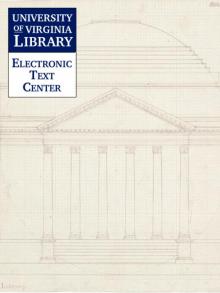 The New Revelation
The New Revelation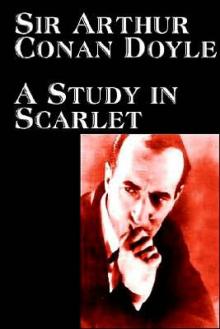 A Study in Scarlet (sherlock holmes)
A Study in Scarlet (sherlock holmes)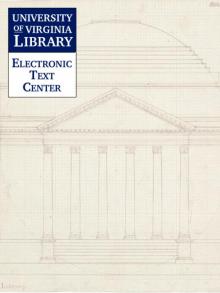 The Vital Message
The Vital Message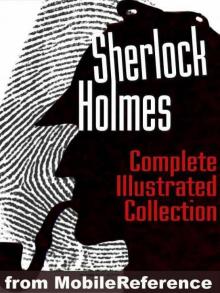 Sherlock Holmes Complete Collection
Sherlock Holmes Complete Collection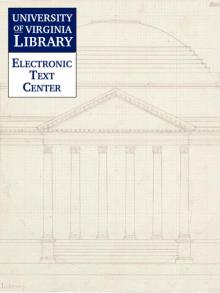 Round the Red Lamp
Round the Red Lamp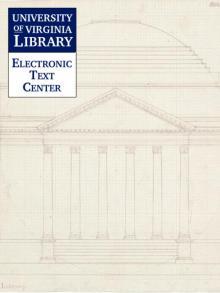 The Boscombe Valley Mystery
The Boscombe Valley Mystery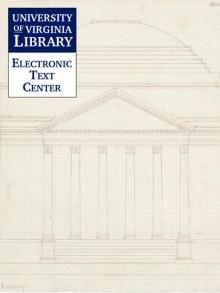 The Adventure of the Beryl Coronet
The Adventure of the Beryl Coronet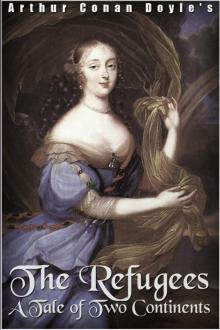 The Refugees
The Refugees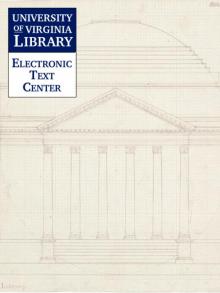 The Adventure of the Three Students.
The Adventure of the Three Students.